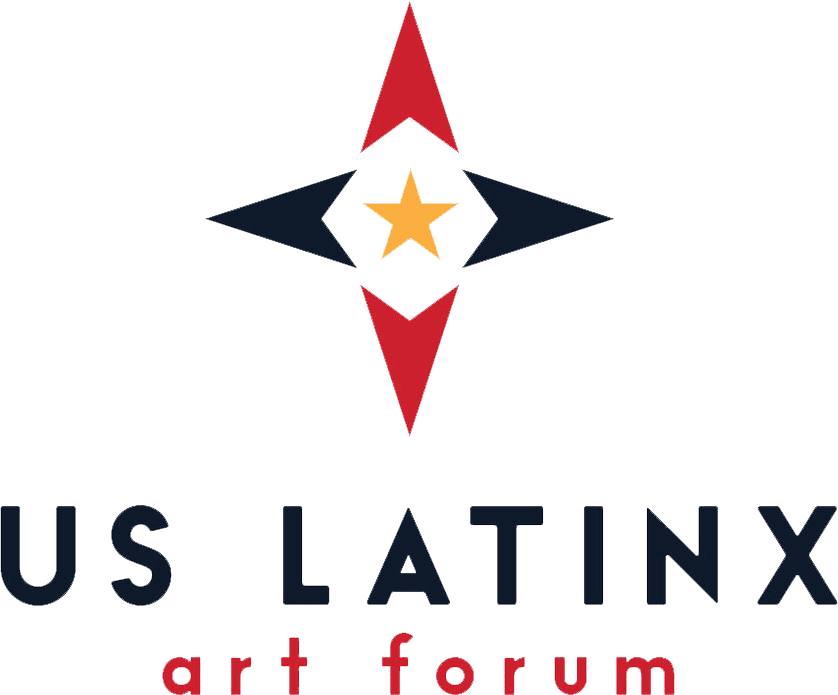
History
The U.S. Latinx Art Forum (USLAF) emerged from the two-part scholarly session “Imagining a U.S. Latina/o Art History,” chaired by Adriana Zavala at the 2015 Annual Conference of the College Art Association (CAA) in New York. Central among the issues raised at the session was the ongoing marginalization of U.S. Latinx art within museums, galleries, and cultural institutions as well as in the fields of American and Latin American art history. USLAF forms as a concerted effort to advocate for the field of Latinx art, foster equity and growth, and support its practitioners.
2025
Organizational Growth
On the heels of USLAF’s 10th anniversary, the organization expanded its leadership structure with the promotion of Co-Founder Josh T Franco and Director of Programs Mary Thomas to Executive Director and Deputy Director respectively.
2022
USLAF Launches Artist Mentorship Program
USLAF launched the Artist Mentorship Program, which supported intergenerational skill exchanges amongst six pairs of visual artists.The recipients took an expansive approach to considering what a skill exchange can entail in relation to the specific needs of their practices
2021
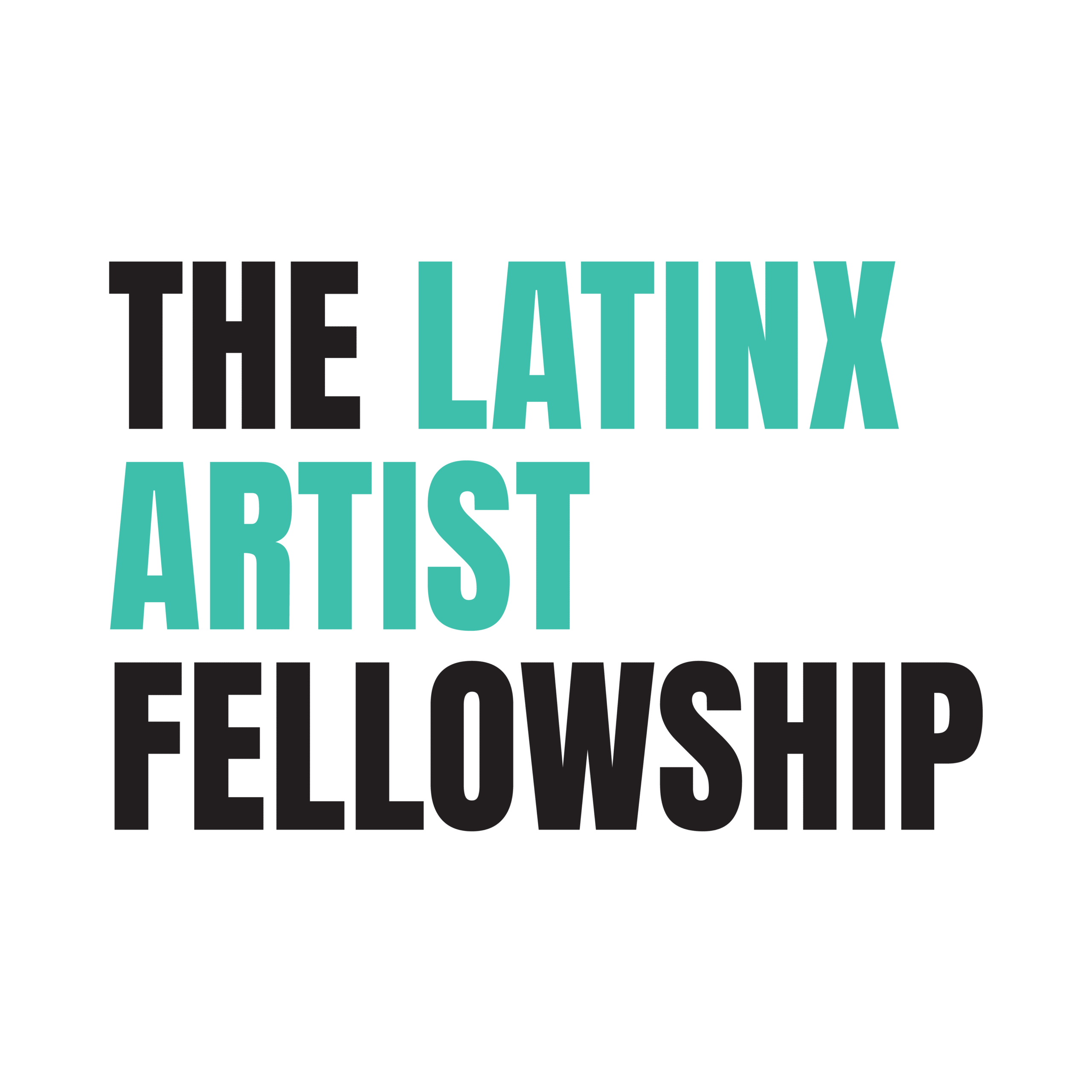
USLAF Launches Latinx Artist Fellowship
In July 2021, USLAF launched the Latinx Artist Fellowship with support from the Mellon and Ford Foundations, and in collaboration with the New York Foundation for the Arts. The Latinx Artist Fellowship, is the first significant prize of its kind and celebrates the plurality and diversity of Latinx artists and aesthetics, by awarding $50,000 each to a multigenerational cohort of 15 Latinx visual artists each year for an initial commitment of five years.
2021
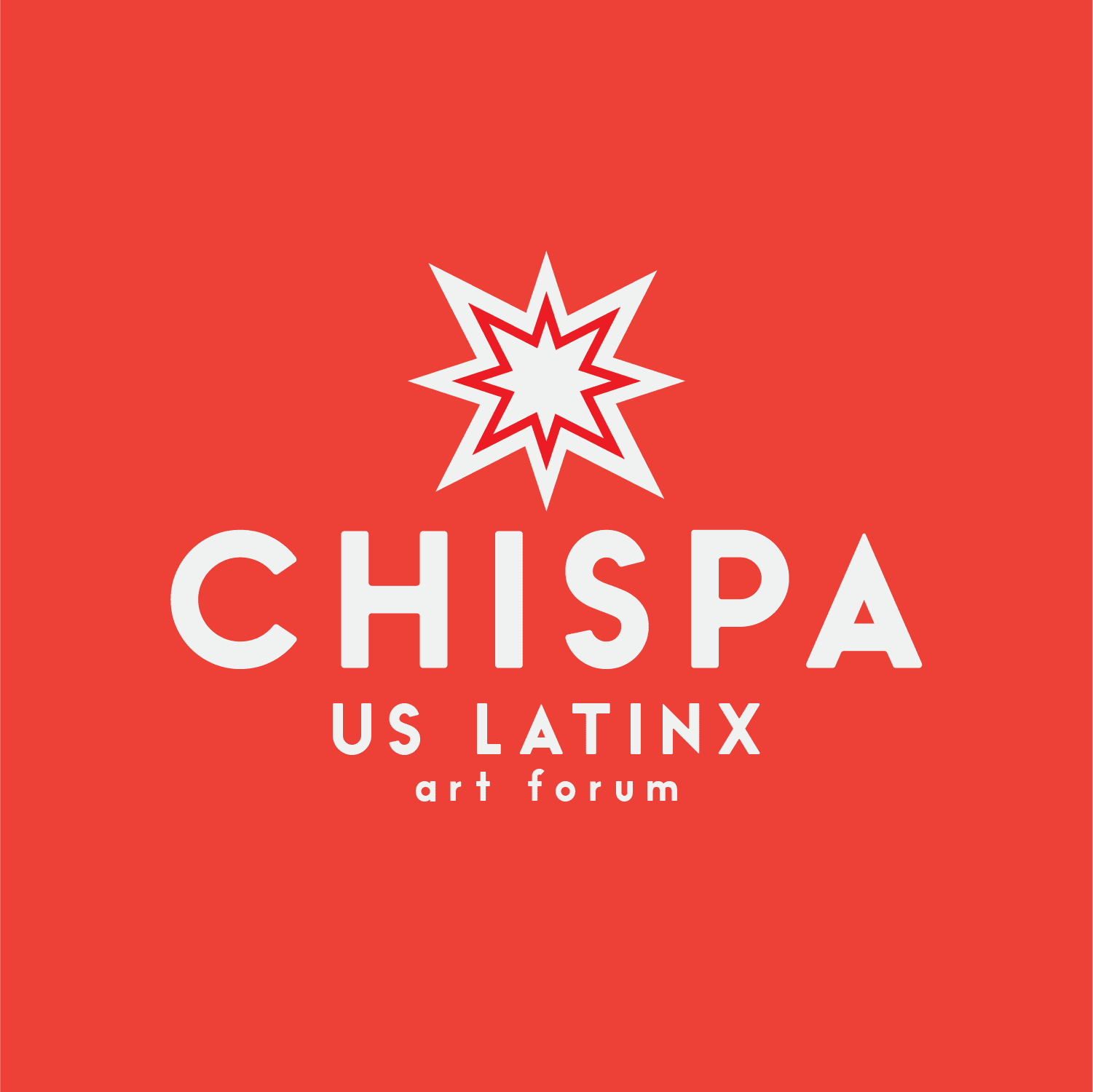
USLAF Launches CHISPA
USLAF launched CHISPA, a series of mini virtual studio visits that featured Latinx visual artists from a range of backgrounds, who were invited to record short videos responding to a set of prompts. CHISPA artists’ videos shed light on the issues that animate their respective practices and on the real-life and symbolic significance, possibilities, and limitations of the ‘X,’ underscoring the complexity and multifaceted nature of working and thriving as a Latinx artist in 2021.
2021
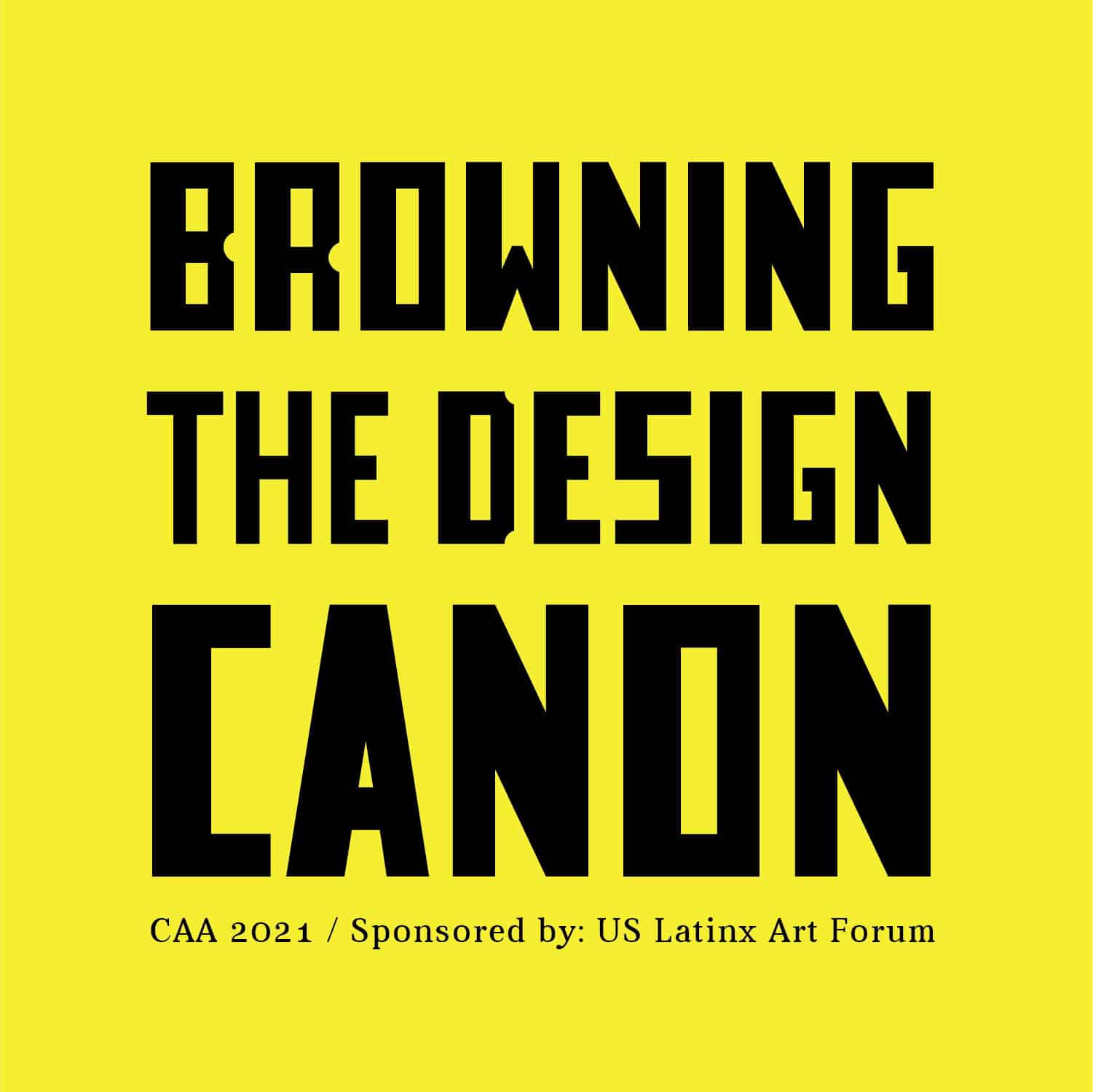
“Browning the Design Canon”
USLAF sponsors “Browning the Design Canon,” chaired by Romero and Gaby Hernandez with panelists Alexandria Victoria Canchola, Shantanu Suman, Sadie Red Wing, and Kelly A. Waterschair at the CAA Annual Conference.
2020
“Black and Latinx Arts: Radical Solidarity and Racial Intersections”
USLAF sponsors “Black and Latinx Arts: Radical Solidarity and Racial Intersections,” chaired by Kaelyn Rodríguez and John Vincent Decemvirale with panelists Julia Fernández, Melanie A. Herzog, and Abigail Lapin Dardashti, at the CAA Annual Conference
USLAF grows to 450 members
2020
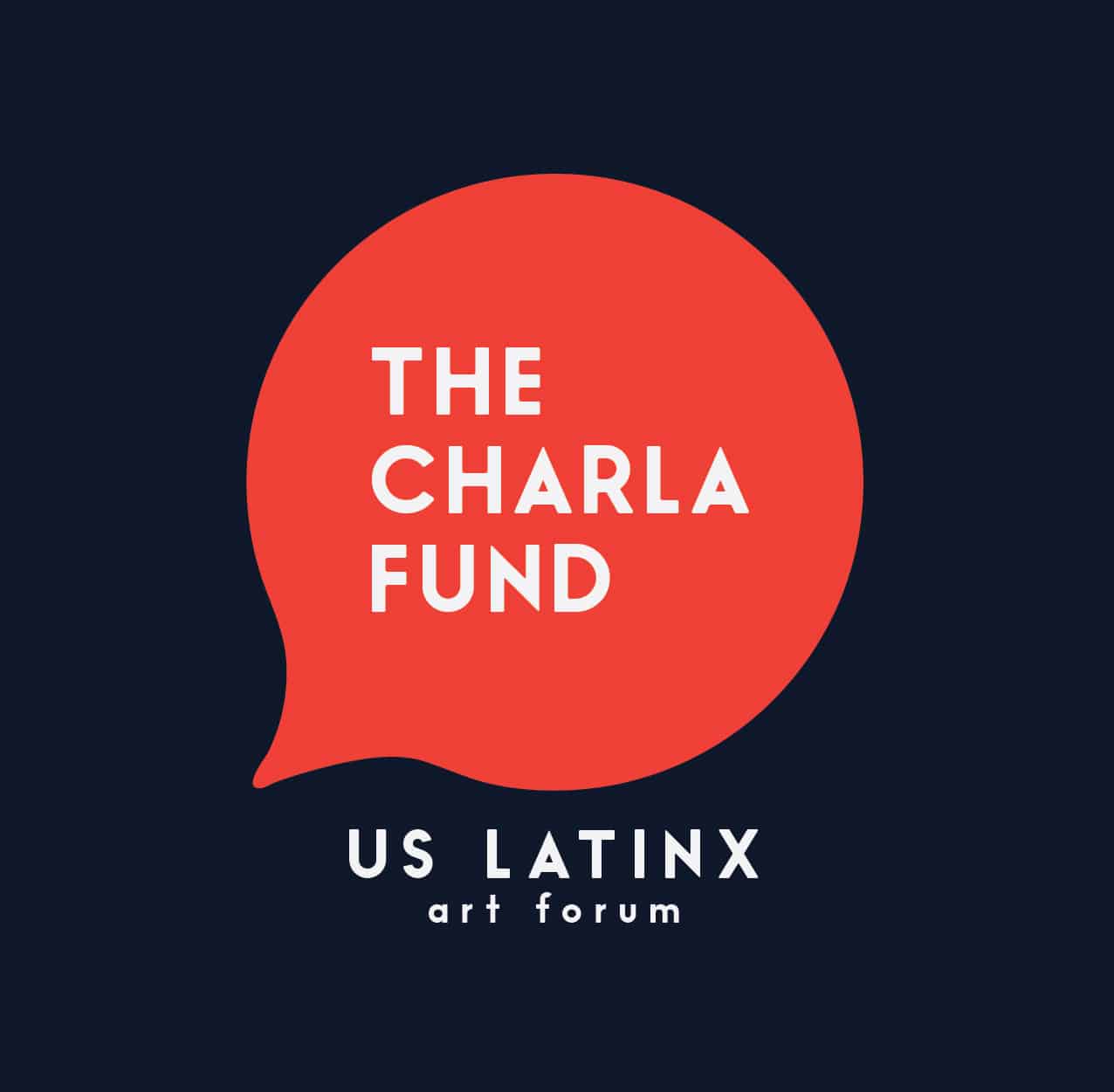
USLAF Launches Charla Fund
USLAF launches the Charla Fund, which offers a flexible and open-ended format that enables artist-recipients to have creative, challenging, supportive, and unconventional conversations with fellow artists and other artworkers and between the field of visual art and other disciplines. The Charla Fund is an initiative created in response to the COVID-19 pandemic and ongoing threats to justice
Charla Fund Round 1 Recipient Biographies and Archives
2019
“Latinx Sounds: Auditory Technologies of Resistance and Aural Practices of Social Transformation”
USLAF sponsors “Latinx Sounds: Auditory Technologies of Resistance and Aural Practices of Social Transformation,” chaired by Joshua Rios with panelists Susana Sepulveda, Esther Diaz Martin, Anthony Romero, and Alex Chavez, at the CAA Annual Conference
Statistics for Latinx art papers and panels plateau at CAA after increasing steadily every year from 2016–2018. USLAF attributes both the 2018 spike and the comparatively low turnout in 2019 to the buzz generated by the Getty Foundation’s PST: LA/LA initiative, which coincided with CAA 2018 in Los Angeles and spotlighted Latin American and Latinx art
USLAF sponsors two panels at IUPLR’s Latino Art Now! conference in Houston:
“Latinx Art is American Art,” chaired by Zavala and Rocío Aranda-Alvarado with Stephanie Concepción Ramírez and Juan Sánchez; and “Next Generation: New Directions in Chicanx Art History,” with presentations by Gandert and Thomas and moderated by Guisela Latorre
Salseda publishes, “Creating Equity in Academia for Latinx Art History,” in Latin American & Latinx Visual Culture
USLAF grows to 350 members
2018
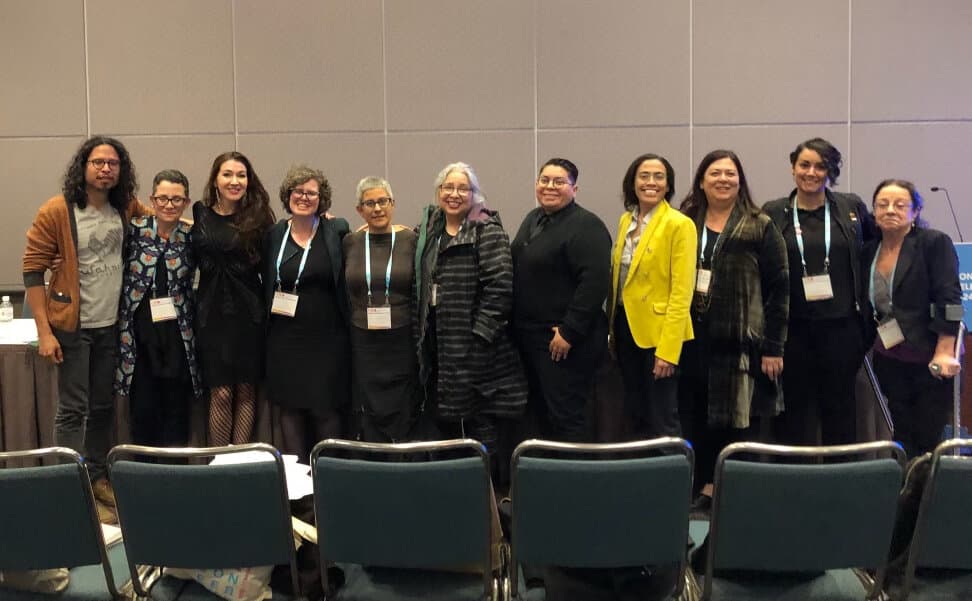
“Chicanx/Latinx Art after PST: LA/LA: Sustaining the Field”
USLAF collaborates with Self Help Graphics & Art to host the panel “Chicanx/Latinx Art after PST: LA/LA: Sustaining the Field,” moderated by Gandert with panelists Judithe Hernández, Raul Baltazar, Marcus Kuiland-Nazario, Lourdes Ramos, Betty Avila, and Mario Ontiveros
After a modest increase in panels and papers on Latinx art from 2016 to 2017 (from 2 to 3 sessions and from 7 to 14 papers), 2018 statistics tracked by Gandert and Thomas reveal an increase from 3 to 7 sessions and from 14 to 35 papers
USLAF hosts its first sponsored session as an affiliated society of CAA, “Chican@ Art History: Interdisciplinary Foundations and New Directions,” co-chaired by Thomas and Karen Mary Davalos with panelists Jennifer Ponce de León, Claudia Zapata, and Gigi Otálvaro-Hormillosa
USLAF convenes with over 40 New York-based stakeholders, including artists, curators, art administrators, journalists, and scholars at the Joan Mitchell Foundation. They identify key findings, including the need for an interconnected and engaged community with shared commitments to the field of Latinx art that facilitate resource sharing, access to professional opportunities, and stronger advocacy efforts
USLAF grows to 300 members
2017
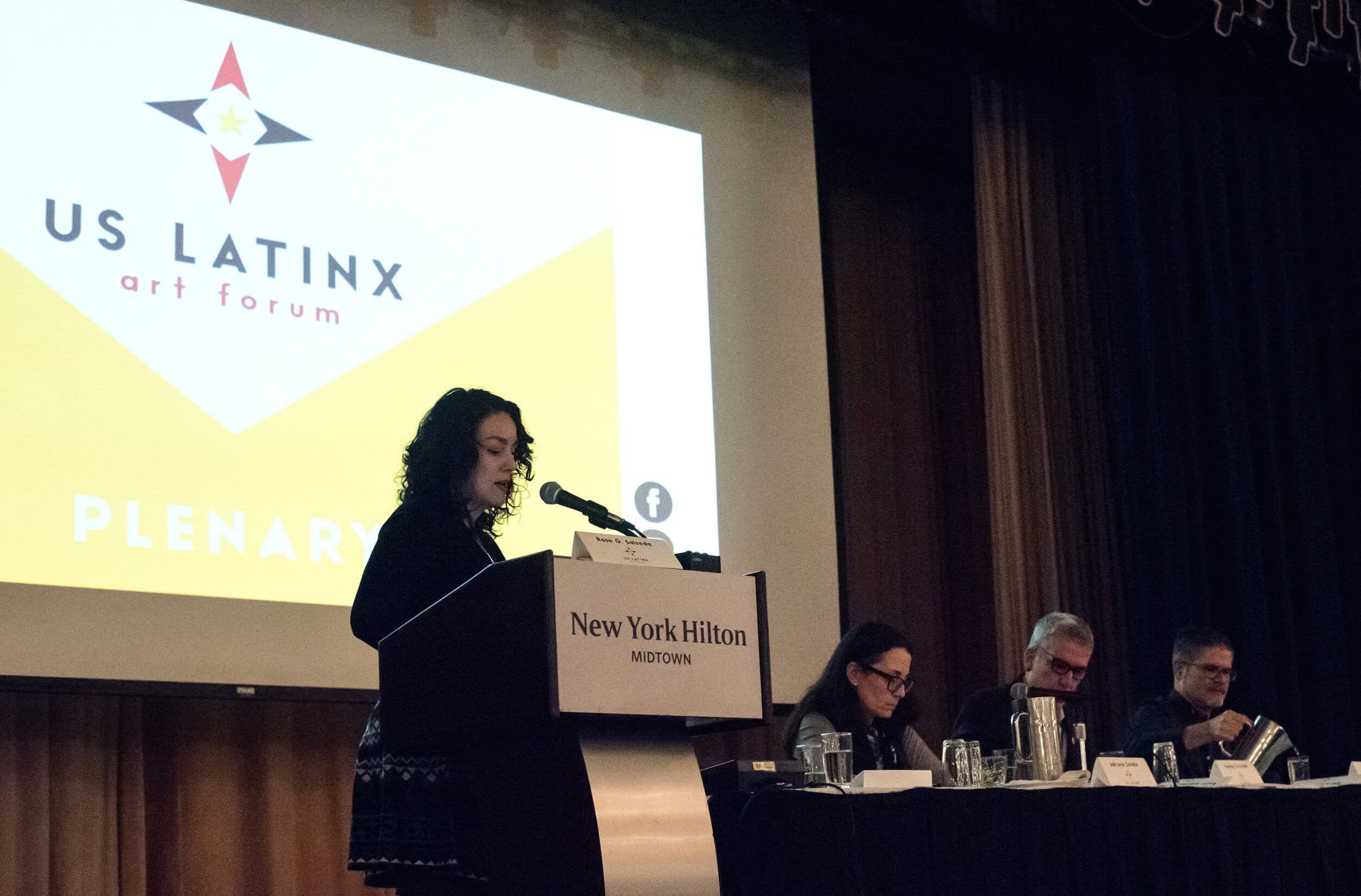
“We Have to Mobilize”
Duron writes “‘We Have to Mobilize’: Latinx Art Scholars Talk Representation with the College Art Association” for ARTnews
CAA and USLAF collaborate on a 2-day plenary on Latinx art at the 2017 Annual Conference with panelists Rocío Aranda-Alvarado, David Breslin, Tey Marianna Nunn, Hunter O’Hanian, Roberto Tejada, Gandert, Salseda, and Zavala.
USLAF holds its first business meeting at the CAA Annual Conference
USLAF grows to over 250 members
2016
“Imagining and Intervening: U.S. Latin@ Art and History Today and Tomorrow”
Salseda and Thomas spearhead a data collection initiative that tracks the low representation of Latinx art at the Annual Conference of CAA from 2012 to 2016 and write a Call to Action to USLAF members
Zavala chairs the panel “Imagining and Intervening: U.S. Latin@ Art and History Today and Tomorrow,” with panelists Taína Caragol, Robb Hernández, Tatiana Reinoza, Gandert, Romero, and Salseda, at the Inter-University Program for Latino Research (IUPLR) Latino Art Now! conference in Chicago
Seph Rodney writes “A Conversation about Latino Representation in US Departments of Art History,” for Hyperallergic
Seph Rodney writes “Group Calls for Greater Latinx Representation in the College Art Association” for Hyperallergic
Franco, Salseda , and Zavala are speakers at the US Latinx Arts Futures Symposium at the Ford Foundation organized by artist Teresita Fernandez
Maximiliano Duron writes “Study: Latino Art Underrepresented at the College Art Association’s Annual Conference” for ARTnews
The College Art Association grants
USLAF affiliated society status
USLAF becomes a 501c3 non-profit organization
USLAF changes its name from the U.S. Latina/o Art Forum to the U.S. Latinx Art Forum
USLAF grows to 165 members
2015
“Imagining a U.S. Latina/o Art History”
Adriana Zavala chairs and organizes the two-part panel “Imagining a U.S. Latina/o Art History” at the CAA Annual Conference in New York City in February. Panelists include Elizabeth Adan, Taina Caragol, Josh T. Franco, Sonja Gandert, Guisela Latorre, E. Carmen Ramos, and Rose Salseda
Salseda proposes creating an affiliated society of CAA for Latinx art, supported by Franco, Gandert, and Zavala. They ask Sam Romero to join their effort
Franco, Gandert, Romero, Salseda, and Zavala become the founding Executive Committee of the U.S. Latinx Art Forum. Mary Thomas soon joins the team
Zavala publishes “Latin@ Art at the Intersection” in Aztlan: A Journal of Chicano Studies
Zavala, Salseda, and Gandert track all PhD students specializing in U.S. Latinx art history
USLAF gains 75 members by year-end
